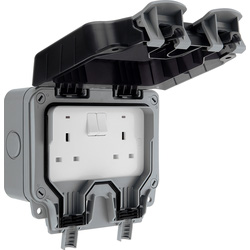- Joined
- 12 Mar 2016
- Messages
- 222
- Reaction score
- 1
- Country

Hi all
Just wondering where would be the best place to put sockets for washing machine and dishwasher as want to have them away for any water or water splashes.
Don't want them under the kitchen sink.
The washing machine and dishwasher will go where the chair is (yes we are expanding the area there)
The current sockets on the wall are too far away to connect the washing machine and dishwasher.
Please see picture and any advice appreciated

Just wondering where would be the best place to put sockets for washing machine and dishwasher as want to have them away for any water or water splashes.
Don't want them under the kitchen sink.
The washing machine and dishwasher will go where the chair is (yes we are expanding the area there)
The current sockets on the wall are too far away to connect the washing machine and dishwasher.
Please see picture and any advice appreciated



